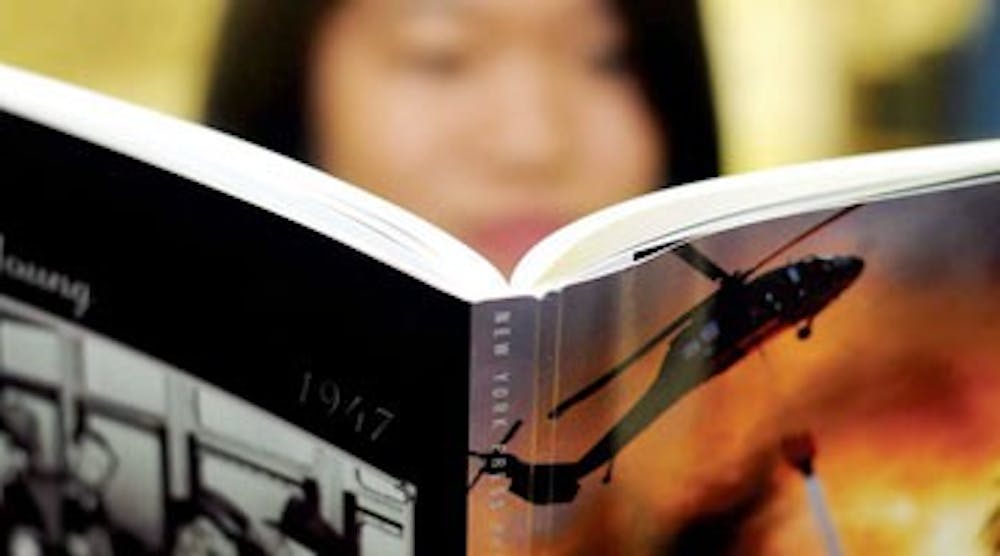
College students don't read - at least not outside of class.
At least that's what several recent studies and many students have led us to believe. Some professors beg to differ.
Over the past 20 years, the percentage of 17-year-olds who do not read for pleasure has doubled from 18 to 36 percent, according to a 2007 National Endowment for the Arts report.
That number gets even worse when they enter college: There is an 18-percent drop in reading for fun on a weekly basis among college freshmen.
And a 2006 study by the American Institutes for Research found that more than half of four-year college students lack sufficient literacy skills to understand the arguments of newspaper editorials.
"There's so much reading assigned for class that people don't necessarily want to take more on their own," said College sophomore Amy Oster, who said she did a lot of outside reading last year but hasn't this year because she is taking an additional class. Oster added that she thinks the social college environment is less conducive to reading.
College sophomore Lauren Rosenberg agreed: "Reading's just not a priority anymore."
Such facts may also fuel popular stereotypes around Penn, including the one claiming that Wharton kids can't read.
"Wharton students definitely don't read as much [overall] because our classes don't require as much reading," said Wharton and College sophomore Dong Chen, who said his history classes sometimes assign a mandatory 100 pages, compared to only recommended reading for his accounting class.
"What college students typically read is not helpful at all to improving literacy rates anyway," added Chen, who described a recent Penn Bookstore campus best-seller, the Twilight series by Stephenie Meyer, as "trashy."
However, fellow Wharton sophomore Jordan Rubin, who read The Odyssey for pleasure this past summer, disagreed with the Wharton stereotype, calling it the exception rather than the norm.
The Penn faculty also hasn't seen any such evidence. The English department has seen a steady if not increased interest in reading among students in the success of events like the annual Winter Reading Project, which recommends books to students and then facilitates discussion groups, according to Emily Steiner, the department's undergraduate chairwoman.
English department chairman Suvir Kaul also said that there is a misconception that reading for pleasure used to be more common. He noted his students are "not any better or worse-read than in the past."
"I haven't seen any drastic change in reading levels based on purchases," said one Penn Bookstore sales representative, who declined to provide his full name. He said the most popular genres on campus are fiction and business.
Other faculty members see a shift in the timing and type of reading students are doing.
"My general impression is that most of the reading students are doing are either specifically for class, online or during holidays or summers," said Kings Court English College House faculty fellow Rose Malague, who cited extracurricular commitments as a major reason for the pattern.
But she believes there still exists genuine interest in the pastime among students. Malague ran the Odd-Sunday Book Club in Kings Court for four years after being approached by a group of students who wanted to read outside of class and met to discuss short stories because "it's tough to commit to reading longer novels."
She added that she thinks the general population is reading more with the rise of Amazon.com and Oprah's Book Club but that it hasn't trickled down to students.
"People are doing a lot of reading of Facebook," Malague joked.
The Daily Pennsylvanian is an independent, student-run newspaper. Please consider making a donation to support the coverage that shapes the University. Your generosity ensures a future of strong journalism at Penn.
DonatePlease note All comments are eligible for publication in The Daily Pennsylvanian.







